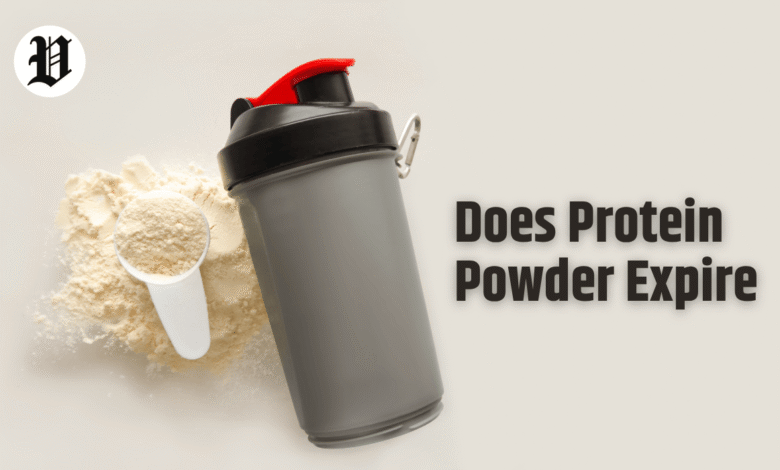Does Protein Powder Expire? Shelf Life, Safety, and When to Toss It

Protein powder is practically a superhero for anyone looking to pump up their protein intake—whether you’re bulking up, recovering from a tough workout, or just trying to stay healthy. But even superheroes have an expiration date. This article, packed with the latest know-how as of August 2025, digs into everything you need to know about protein powder’s shelf life, safety, and storage. We’ll unravel the science behind why it goes off, share practical tips to keep it fresh, and break down what’s different about various types of powders.
So, Does Protein Powder Actually Expire?
Yup, protein powder does expire, but it’s not like it turns into poison the day after the date on the tub. It’s more about the quality taking a dive than it being a health hazard right away. How long it stays good depends on what kind it is and how you store it. For instance, research says whey protein typically holds up for 9–19 months in normal conditions (like a comfy 70°F/21°C with 35–45% humidity). But you’ll often see brands giving it a 2-year expiration date, probably because they toss in preservatives like maltodextrin or lecithin to stretch its life.
When protein powder hits its expiration, it doesn’t just quit on you—it slowly loses its edge. Studies show that amino acids, like lysine in whey protein, can drop from 5.5% to 4.2% over a year, so it’s not as potent for muscle building or recovery. Plus, there’s this thing called Maillard browning that can make it taste like cardboard—yuck. If you’ve stored it somewhere warm and humid, it might even spoil and could upset your stomach if you chug it.
What Makes Protein Powder Last Longer (or Not)?
Storage is the name of the game here. Keep your protein powder in a cool, dark, dry spot—think a pantry corner, not perched on your fridge or baking in sunlight. A trusty airtight container, like a mason jar, is a game-changer for keeping moisture and oxidation at bay, both of which can make your powder go bad faster. Always scoop with a dry spoon and snap that lid shut tight after each use to stop mold or bacteria from crashing the party.
Wondering if your powder’s past its prime? Sniff it—if it smells rancid, it’s probably done. Look for clumps, weird color changes (like darkening), or a bitter, cardboard-like taste. If you’re not sure, a tiny taste can settle it, but if it’s been sitting around way past its expiration date or looks sketchy, just toss it. Those “best by” or “use by” dates on the label are more about when it’s at its peak, not when it becomes unsafe—supplement companies aren’t required to set hard safety dates, so it’s about quality.
Is It Okay to Use Expired Protein Powder?
If your powder’s just a smidge past its expiration date and you’ve stored it like a pro, it’s usually fine to mix up a shake. Protein powder’s super low moisture makes it tough for bacteria to grow, so it’s not likely to make you seriously sick. But if it’s been chilling in a humid gym bag or a steamy bathroom, spoilage could lead to tummy troubles like nausea or discomfort.
The bigger bummer with expired powder is that it’s not as effective. Amino acids start breaking down, so it won’t give you the same muscle-building or recovery boost. Research shows that high heat (like 113°F/45°C for 15 weeks) can crank up oxidation, messing with quality—oxidation can spike tenfold for every 50°F/10°C jump in temperature. So, even if it’s still got some protein, it’s not the star player it used to be, especially if you’re chasing fitness goals.
Different Powders, Different Rules
Not all protein powders age the same. Whey protein, which comes from milk, usually lasts 9–19 months if stored well, with preservatives pushing it to 2 years. Its dairy roots mean it can spoil if you’re not careful, though its dry form keeps bacteria risks lower than, say, a carton of milk. Plant-based powders—like pea, rice, or soy—have their own shelf life vibes. Pea protein, for example, might stay fresher if you stash it in the fridge, especially in humid climates.
Collagen and branched-chain amino acids (BCAAs) follow similar patterns, but there’s less hard data on how long they last. They’re dry and shelf-stable, but storage and additives make a big difference. Always check the label for any specific expiration or storage tips.
Can You Still Drink Expired Protein Powder?
If it’s just barely past the expiration date and stored right, go for it—it’s probably safe. But don’t expect it to taste like a gourmet shake or work miracles. Maillard browning can make it taste flat or weird, and if you feel any stomach pain or nausea after drinking it, ditch it ASAP. To keep your powder fresh, store it in a cool, dark spot, use an airtight container, and make sure your scooper’s dry. Those single-serve packets can also help lock in freshness for longer.
Pro Tips for Storing and Using Protein Powder
Here’s how to keep your protein powder in tip-top shape:
- Stash it in a cool, dark place—like a pantry, not near your stove or in direct sunlight.
- Pop it in an airtight container to fend off moisture and oxidation.
- Use a dry scooper every time to avoid sneaking water into the mix.
- Seal the lid tight after each use to keep things clean.
- Try transferring it to a mason jar for an extra layer of protection.
Once you crack open a tub, aim to use it within 6–12 months for the best quality. If it’s clumping, smells funky, or tastes off—especially if it’s way past its expiration date—just let it go.
FAQs: Your Protein Powder Questions Answered
Got a burning question? Here’s the lowdown:
How long does protein powder last after opening?
About 6–12 months, depending on how you store it. Use it in that time for the best results.
Can I use protein powder a year past expiration?
If it’s stored well and looks and smells fine, it might still be usable, but it won’t be as effective.
What happens if I drink expired protein powder?
If it’s just past the date, it’s usually safe, but spoiled powder might upset your stomach, and the taste could be meh.
How do I know if my protein powder’s gone bad?
Check for a rancid smell, clumps, color changes, or a cardboard-like taste.
Does whey protein expire faster than other types?
Whey lasts 9–19 months; plant-based powders vary, so peek at the product’s details.
Is it safe to use protein powder past expiration?
Generally okay if it’s just past and stored well, but quality and effectiveness take a hit.
What’s the best way to store protein powder?
Cool, dark, dry spot; airtight container; dry scooper; seal it tight every time.
The Final Scoop
Protein powder does expire, but if it’s just past its date and you’ve stored it well, it’s usually safe to use—though it might not taste awesome or give you the full nutritional bang for your buck. Over time, amino acids break down, and oxidation can dull its powers, especially for fitness goals. To keep it fresh, store it in a cool, dry, dark place, use an airtight container, and always check for spoilage before mixing up your shake. If it smells or looks off, don’t chance it—toss it and keep your health and fitness on point.





One Comment